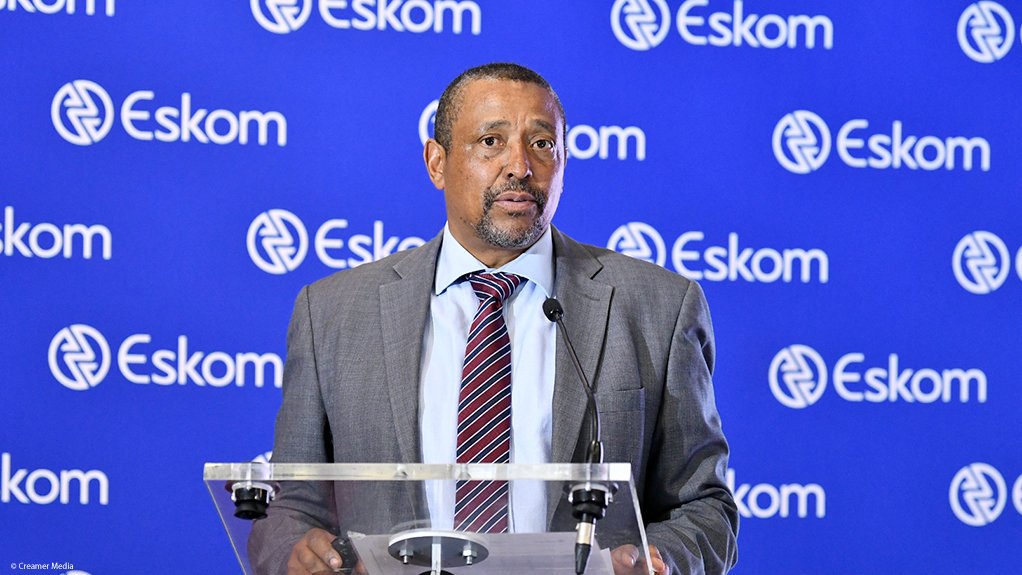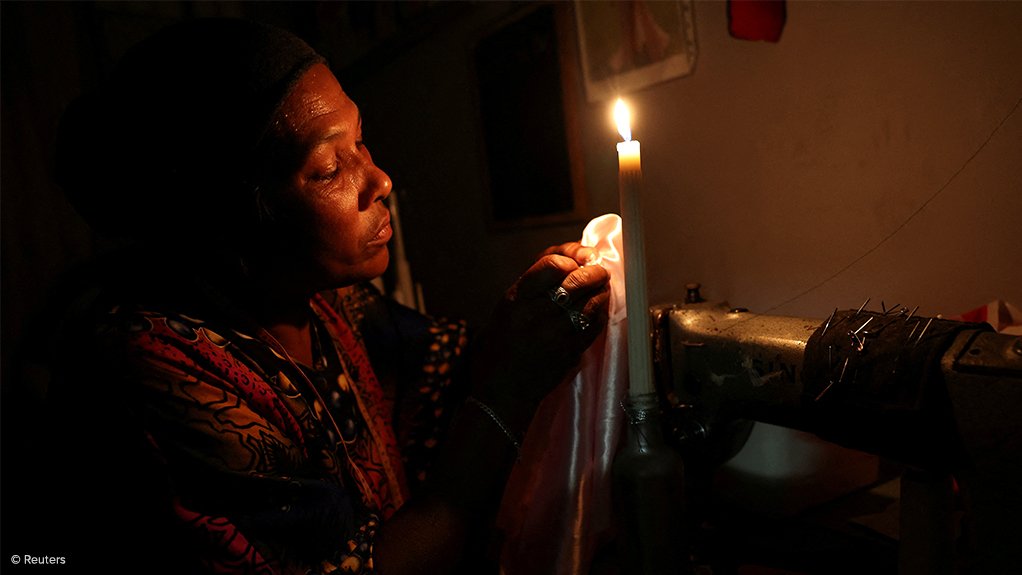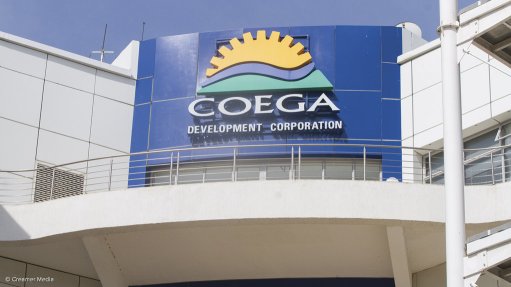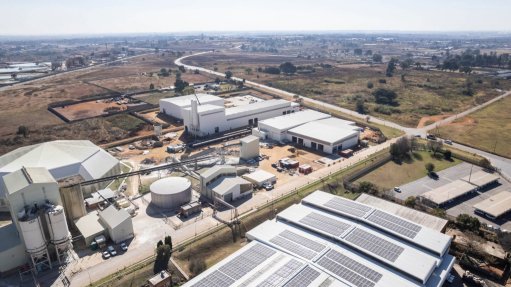Eskom implements load reduction in seven provinces, but loadshedding remains suspended



Eskom distribution group executive Monde Bala
Photo by Creamer Media
Photo by Reuters
With continued cold winter weather, increasing electricity theft and the indiscriminate use of electricity, the issue of network overloading has resurfaced in seven of South Africa’s provinces, State-owned power utility Eskom advises.
The utility will, therefore, implement load reduction in Limpopo, the Western Cape, the Eastern Cape, Gauteng, Mpumalanga, North West and KwaZulu-Natal.
This is despite the utility having achieved more than 100 consecutive days without loadshedding.
Eskom has sufficient generation capacity to meet demand, meaning it does not have to resort to loadshedding; however, as customers’ demand is higher than what the equipment in particular areas can withstand, load reduction is implemented to prevent transformers and substations from being damaged and potentially exploding, which could injure people.
During the winter season, there is an exponential increase in energy demand in areas prone to electricity theft, as electricity is often used indiscriminately, leading to network failure owing to extreme overloading, the utility points out.
It notes that there are currently about 2 111 transformers that are frequently overloaded across the country and at risk of being damaged, with about 900 transformers awaiting replacement.
Eskom says about 94% of the total overload of transformers are in the seven affected provinces.
“Overloaded transformers as a result of electricity theft present a serious risk to human life. We only implement load reduction as a very last resort for the shortest periods possible after all other options have been exhausted,” says Eskom distribution group executive Monde Bala.
He adds that a transformer damaged by overloading can leave an area without power for up to six months and that protecting Eskom’s assets is in the best interest of all South Africans.
In areas where load reduction has been implemented in the past, Eskom has seen a significant reduction in equipment failure and prolonged outages.
Load reduction is most likely to be implemented between 05:00 and 07:00 in the morning and again from 17:00 to 19:00 in the evening, when the risk of overloading transformers is highest.
In areas where load reduction will be implemented, the relevant cluster or province will communicate with affected customers through the normal channels including SMS and Customer Connect newsletters.
Meanwhile, Eskom points out that electricity theft activities are wide-ranging and include illegal connections, network equipment theft, vandalism, meter bypasses and tampering, unauthorised network operations and buying electricity from illegal vendors.
Bala explains that electricity infrastructure is designed to handle loads based on known demand through legally connected customers and actual sales for specific areas. Exceeding these loads through electricity theft can overload the equipment, potentially causing explosions that may lead to electrical fires in the surrounding areas.
Eskom has invested resources over time and increased capacity to meet the exponential demand in the areas that are prone to overloading, but the demand has continued to grow, rendering the situation unsustainable.
Eskom has been engaging with various communities, educating them on the safe and efficient use of electricity.
In some areas, Eskom has removed illegal connections; however, network overloading persists.
While Eskom aims to exclude paying customers from load reduction, the network’s configuration does not allow for dedicated supply lines to paying customers, making it impractical to service them separately.
Eskom is urging customers to reduce their electricity consumption to prevent load reduction and abrupt loss of supply, as well as to ensure their electricity is legally connected and paid for from legal vendors.
The utility also urges customers to report illegal activities to the Eskom Crime Line at 0800 112 722.
Article Enquiry
Email Article
Save Article
Feedback
To advertise email advertising@creamermedia.co.za or click here
Comments
Press Office
Announcements
What's On
Subscribe to improve your user experience...
Option 1 (equivalent of R125 a month):
Receive a weekly copy of Creamer Media's Engineering News & Mining Weekly magazine
(print copy for those in South Africa and e-magazine for those outside of South Africa)
Receive daily email newsletters
Access to full search results
Access archive of magazine back copies
Access to Projects in Progress
Access to ONE Research Report of your choice in PDF format
Option 2 (equivalent of R375 a month):
All benefits from Option 1
PLUS
Access to Creamer Media's Research Channel Africa for ALL Research Reports, in PDF format, on various industrial and mining sectors
including Electricity; Water; Energy Transition; Hydrogen; Roads, Rail and Ports; Coal; Gold; Platinum; Battery Metals; etc.
Already a subscriber?
Forgotten your password?
Receive weekly copy of Creamer Media's Engineering News & Mining Weekly magazine (print copy for those in South Africa and e-magazine for those outside of South Africa)
➕
Recieve daily email newsletters
➕
Access to full search results
➕
Access archive of magazine back copies
➕
Access to Projects in Progress
➕
Access to ONE Research Report of your choice in PDF format
RESEARCH CHANNEL AFRICA
R4500 (equivalent of R375 a month)
SUBSCRIBEAll benefits from Option 1
➕
Access to Creamer Media's Research Channel Africa for ALL Research Reports on various industrial and mining sectors, in PDF format, including on:
Electricity
➕
Water
➕
Energy Transition
➕
Hydrogen
➕
Roads, Rail and Ports
➕
Coal
➕
Gold
➕
Platinum
➕
Battery Metals
➕
etc.
Receive all benefits from Option 1 or Option 2 delivered to numerous people at your company
➕
Multiple User names and Passwords for simultaneous log-ins
➕
Intranet integration access to all in your organisation



















